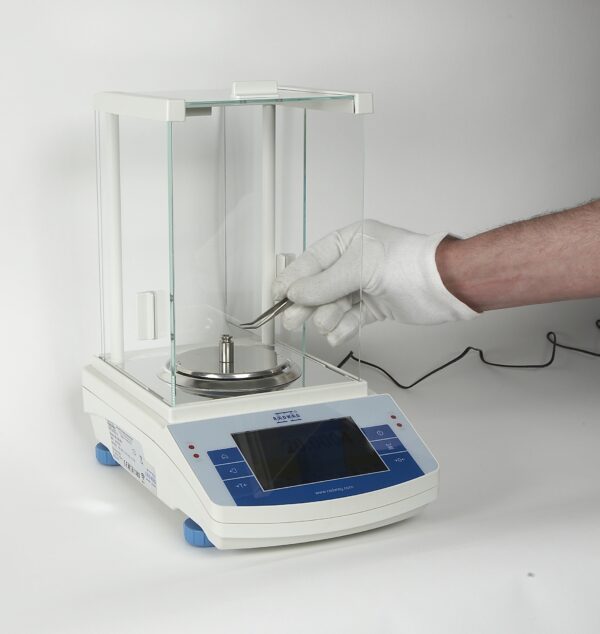What are Analytical Balances?
Analytical balances are precision instruments used to weigh small objects with a high degree of accuracy. They are designed to measure mass down to the microgram level, and they typically have readability of between 0.1 mg and 0.1 µg.
Analytical balances are used in laboratories for measuring a variety of substances, including chemicals, pharmaceuticals, medical samples, food items and precious metals. They are highly sensitive instruments and must be used carefully to ensure accurate readings.
Regular maintenance and calibrations are also required to ensure the equipment remains within a suitable tolerance to meet the customer’s requirements. Analytical balances can also be used for a variety of laboratory applications including sample preparation, formulation, quality control, instrumental analysis and research experiments.
What are the different types of Analytical Balances?
Analytical balances usually come in two main designs, precision or analytical.
Precision balances are used for general laboratory applications and have a wide range of capacities. They feature a larger weighing pan, which allows for the measurement of a greater range of sample weights.
The weighing pan is open, meaning that items can be added directly to the scale. Also, this type of balance does not have a draft shield, which is typically required on balances of 1 mg accuracy and greater.
Analytical balances have smaller weighing pans and offer more precise readings than top-loading models. They are often used for precision measurements in applications such as quality control or research and development. Analytical balances typically have readability of 0.1 mg or greater accuracy.
Both types of balance use a highly sensitive electromagnetic force to measure mass and many contain automatic calibration technology, which uses an internal mass to carry out automatic adjustment based on both time and temperature. Analytical balances can also be connected to computers or external displays for data tracking, printing and analysis.
What are the advantages of using Analytical Balances?
Analytical balances offer several advantages over other types of scales and balances. They provide accurate readings, even at microgram levels, which allow for precise measurements in a wide range of applications.
Analytical balances also feature high readability and repeatability, giving the customer the confidence of achieving consistent reliable results. Analytical balances also require minimal maintenance and are easy to use.
What’s the difference between a scale and a balance?
The terms “balance” and “scale” are often used interchangeably but possess nuanced differences. An analytical balance, as explored earlier, focuses on the measurement of mass down to microscopic levels with unparalleled precision. Its operation is based on the comparison of the mass of the object being weighed with a calibrated internal reference mass.
On the other hand, a scale quantifies weight through the force exerted by an object’s mass on a mechanical or electronic weighing mechanism. Unlike balances, scales are typically calibrated against standardised weights rather than an internal reference mass, making them more suitable for everyday applications where extremely high accuracy is not required.
How to properly maintain an Analytical Balance
Analytical balances should be handled and maintained with care to ensure accurate results. They must be kept away from vibration, draft, light, dust and moisture as these environmental factors can affect the reading accuracy.
It is also important to regularly calibrate the balance according to manufacturer recommendations. This will help keep it in top working condition and ensure continued reliable results.
Additionally, it is important to keep the balance clean by wiping off any dust or debris that may accumulate on and around the pan or weighing mechanism. This will help to maintain accuracy and improve performance.
Conclusion
Analytical balances are precise instruments used to measure mass down to the microgram level and offer a range of advantages over other types of scales.
Proper maintenance and handling is essential for ensuring accurate readings, and regular calibration should be conducted according to manufacturer recommendations.
With proper care, analytical balances can provide reliable results for a wide variety of laboratory applications.
Analytical Balances for Sale in the UK
MWS provides a range of state-of-the-art analytical balances in the UK. We are trusted by some of the largest food, pharmaceutical and chemical manufacturers who rely on us for ensuring uninterrupted operations. Have a look at our range of balances here. If you are unsure which one you require, speak to one of our experts today who would be happy to advise you.





















